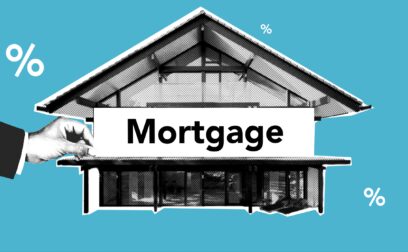If you’re thinking about starting a property management company, it’s important to do your research, secure your funding or commercial mortgage, and make sure you understand exactly what it involves. Read our guide to find out more.
What is a property management company?
A property management company is a company that looks after property portfolios on behalf of its clients. Your clients could be a landlord with one property or someone who owns and rents out hundreds of properties. You’ll need to deal directly with prospective tenants or renters.
What does a property management company do?
In a nutshell, a property management company is there to give landlords peace of mind that their property is being looked after and managed well.
One of the key responsibilities of a property management company is to deal with any maintenance issues and repairs in the property. The company will need to work out exactly what needs doing and arrange for a suitable tradesperson to carry out the work within a reasonable timeframe and budget. The property management company must also keep all parties informed throughout. It might even visit the property to check how well tenants are looking after it.
If a property management company is also acting as a letting agent, it will need to market properties and find and vet suitable tenants. The company will also need to draw up legal tenancy contracts and collect rent.
What are the different types of property management?
Property management includes various roles and responsibilities aimed at maintaining and maximising the value of real estate assets. Different types of property management exist to address the different needs of property owners and stakeholders.
- Residential property management involves overseeing rental properties. Responsibilities may include tenant screening, lease administration, rent collection, and property maintenance.
- Commercial property management focuses on managing commercial real estate properties. Duties typically include lease negotiations, tenant relations, property maintenance, budgeting, and maximising occupancy rates.
- Industrial property management involves managing warehouses, distribution centers, and manufacturing facilities. This type of property management may include overseeing lease agreements, ensuring compliance regulations, maintenance of specialised equipment, and managing tenant relationships.
- Retail property management focuses on managing retail properties. Responsibilities may include tenant recruitment, lease negotiations, marketing, property maintenance, and creating a positive shopping experience for customers.
- Hospitality property management involves managing hotels, resorts, and other hospitality properties. This type of management typically includes guest services, reservations management, housekeeping, maintenance, and ensuring compliance standards and regulations.
- Mixed-use property management involves managing properties that combine multiple uses. This type of management requires coordinating different activities and stakeholders to make sure operation of the property runs smoothly.
- Real estate asset management focuses on strategic planning and financial management to maximise the value of real estate investments. Asset managers may develop investment strategies, conduct financial analysis, and monitor property performance.
How do I start a property management company?
A good first step is to write a business plan. Think about whether you want to focus on residential or commercial and industrial property management, or whether you’d like to do all three.
Also consider your target audience. Do you want your landlords to have one property or several? Would you prefer to work with an estate agent or would you prefer to work with property owners directly?
Additionally, you will need to consider where you’re going to work – are you going to work remotely, or would you prefer to have a physical branch on the high street? Having a physical branch will be more important if you’re planning to act as a letting agent, but it also makes it more expensive.
Next, you will need to think about startup costs. These costs could include:
- Rent (if you’ll be office based)
- IT equipment such as laptops and phones
- Marketing, including advertising
- Setting up as self-employed
- Admin, such as mailing and printing
- Travel to visit client and properties in person
- Insurance (more on this below)
Although startup costs can be expensive, bear in mind that property management can be very profitable, provided you do it right. Most services charge both an upfront fee and a monthly fee. You could even consider offering different pricing tiers – for example, a more expensive premium service offering a 24/7 phoneline.
Do I need any prior industry experience?
You don’t necessarily need to have prior industry experience, but it can certainly be helpful. You’re more likely to succeed if you are organised, have good communication skills and enjoy working with other people.
Being organised is absolutely key as you’ll often be juggling a number of different issues, whether that’s checking contracts have been signed, chasing up tradespeople or making sure properties have been cleaned. It’s vital that you can stay on top of these issues and make sure they are completed on time.
You also need to be flexible and prepared for the unpredictable nature of the work. Some days can be quiet, while others might be spent dealing with issues from a number of different tenants and landlords. You’ll need to act as a go-between, so it’s important that you can keep calm in stressful situations and maintain a friendly and professional manner.
Do I need any property management qualifications?
No, you don’t legally need to have any property management qualifications. However, some property managers have a university degree in real estate and there are courses you can take in property management if you want to. Some of these courses are online-based and only cost around $50. Alternatively, you could choose to sign up for a more in-depth, in-person course that takes a number of weeks.
If you do want to do a course, it’s a good idea to choose one with an accredited body.
How do I choose a niche?
There’s a wide range of rental properties that need to be managed and it’s important to choose a niche that interests you.
Consider whether you might want to work in a neighbourhood you are already familiar with, or whether you’d prefer to venture further afield. Ask yourself what sort of properties you want to rent out. Would you prefer to help students find budget accommodation or would you prefer to rent out luxury flats? Do you want to work with single landlords or property developers that lease out large apartment blocks?
Once you’ve decided on a niche that is of interest, do your research to see if there’s enough demand in your area. Check out competitors too to see how they work and what they charge. Also consider whether your potential clients already use a property management company.
What legal requirements and responsibilities will I have?
If you’re setting up a property management company in the private sector, you will need to join a government-approved redress scheme. These schemes exist to resolve complaints between leaseholders and freeholders who are not happy with the services provided by a property management company.
A independent body that offer redress schemes are The Australian Competition & Consumer Commission (ACCC).
There’s no legal requirement for you to belong to a trade association, but you might want to join one anyway. Doing so will ensure you are kept up to date on best practices and your clients might feel more confident in your business. Take a look at the Australian Landlord Association for more information.
Finally, remember that as a self-employed individual, you will also need to register and complete your self-assessment tax returns on time. Alternatively, if you choose to set up as a limited company, you will need to register and pay for corporation tax.
Does my property management company need insurance?
Yes, your property management company must have professional indemnity insurance – in fact, you can’t join a redress scheme without it. Professional indemnity insurance will cover legal and compensation costs if a claim is made against you – for example, if you gave incorrect advice that caused a client to lose money.
It is also worth taking out public liability insurance as this will cover you for any claims made against you by members of the public. This might be due to a customer having an accident on your business premises, for example.
You might also want to take out personal accident insurance to provide a lump sum pay out if you were unable to work due to an accident. And, if you have staff, it is a legal requirement to have employers’ liability insurance. This will pay compensation if an employee is injured or becomes ill because of the work they do for you.








 yet? Register here!
yet? Register here!